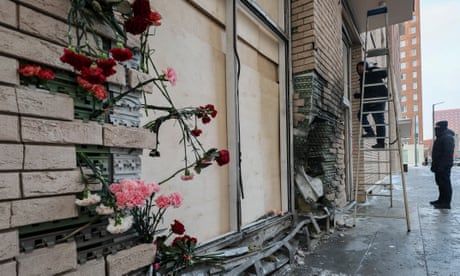
A vacuum among his generals is the last thing the president needs. He will be holding his breath for Trump’s inauguration
The assassination on Tuesday of the Russian general and conspiracy theorist Igor Kirillov in downtown Moscow is yet another operation in a string of small, morale-boosting actions by Ukraine and its sympathisers. Last month, Valery Trankovsky, a senior naval officer, was killed in a car-bombing in Crimea. Sergei Yevsyukov, the former chief of the Russian-operated Olenivka prison that Russian forces blew up in 2022, killing many Ukrainian prisoners of war, died in a similar attack this month in Donetsk. All three men had been accused by Ukraine of war crimes.
These killings are more than acts of retribution; they are part of a calculated effort to signal Ukraine’s resolve in the face of Russian aggression. They serve as a warning to Moscow’s military establishment and offer a modicum of justice to a Ukrainian public enraged by the atrocities committed by Russian forces. Yet the effectiveness of such assassinations is less clear. In authoritarian regimes that lack mechanisms for orderly power transitions, the elimination of high-ranking officials can destabilise leadership structures. A sudden vacuum at the top risks igniting infighting among elites and undermining the regime’s cohesion.
Olga Chyzh researches political violence and repressive regimes, she is an assistant professor in the Department of Political Science at the University of Toronto
Continue reading...